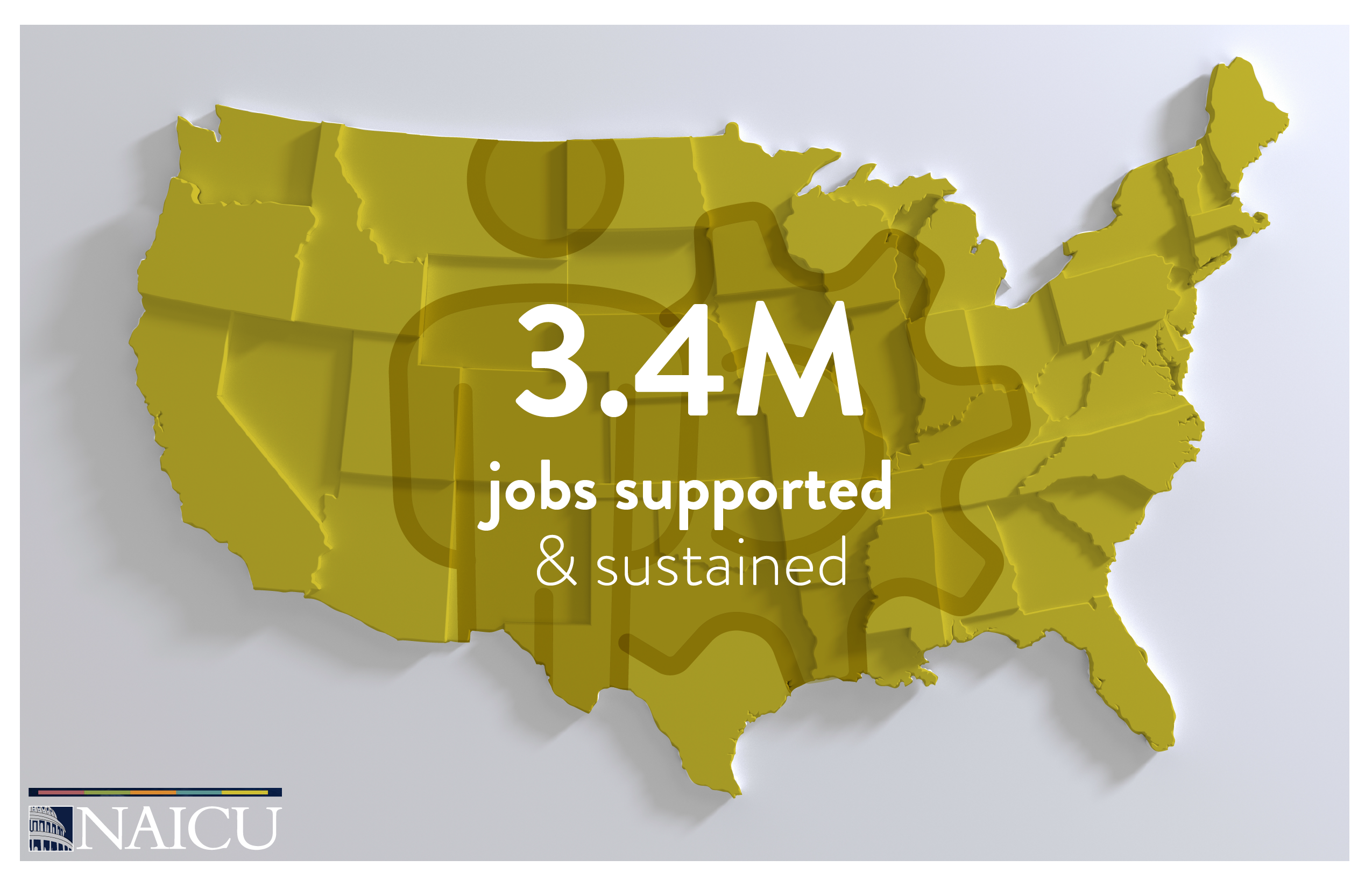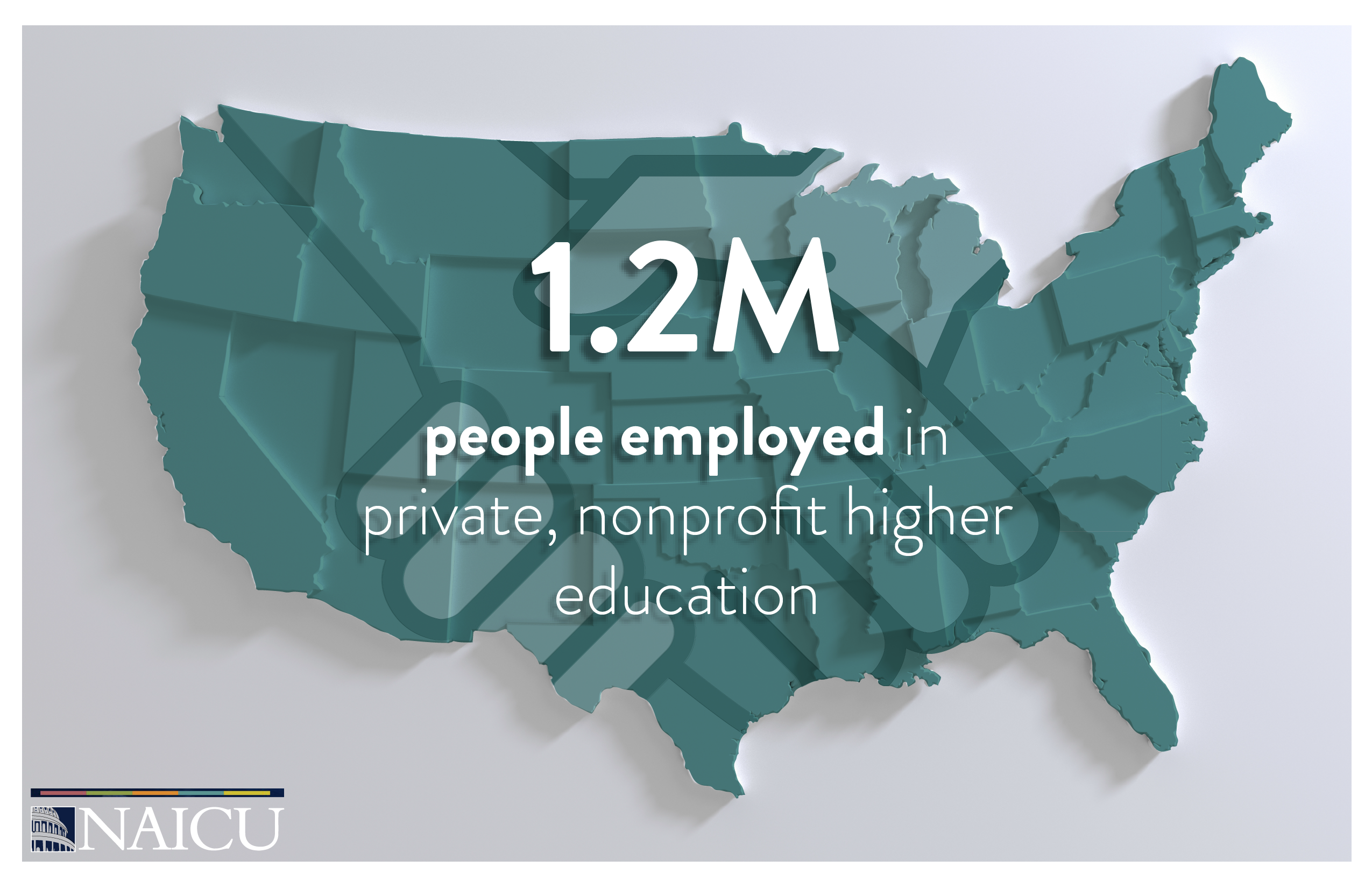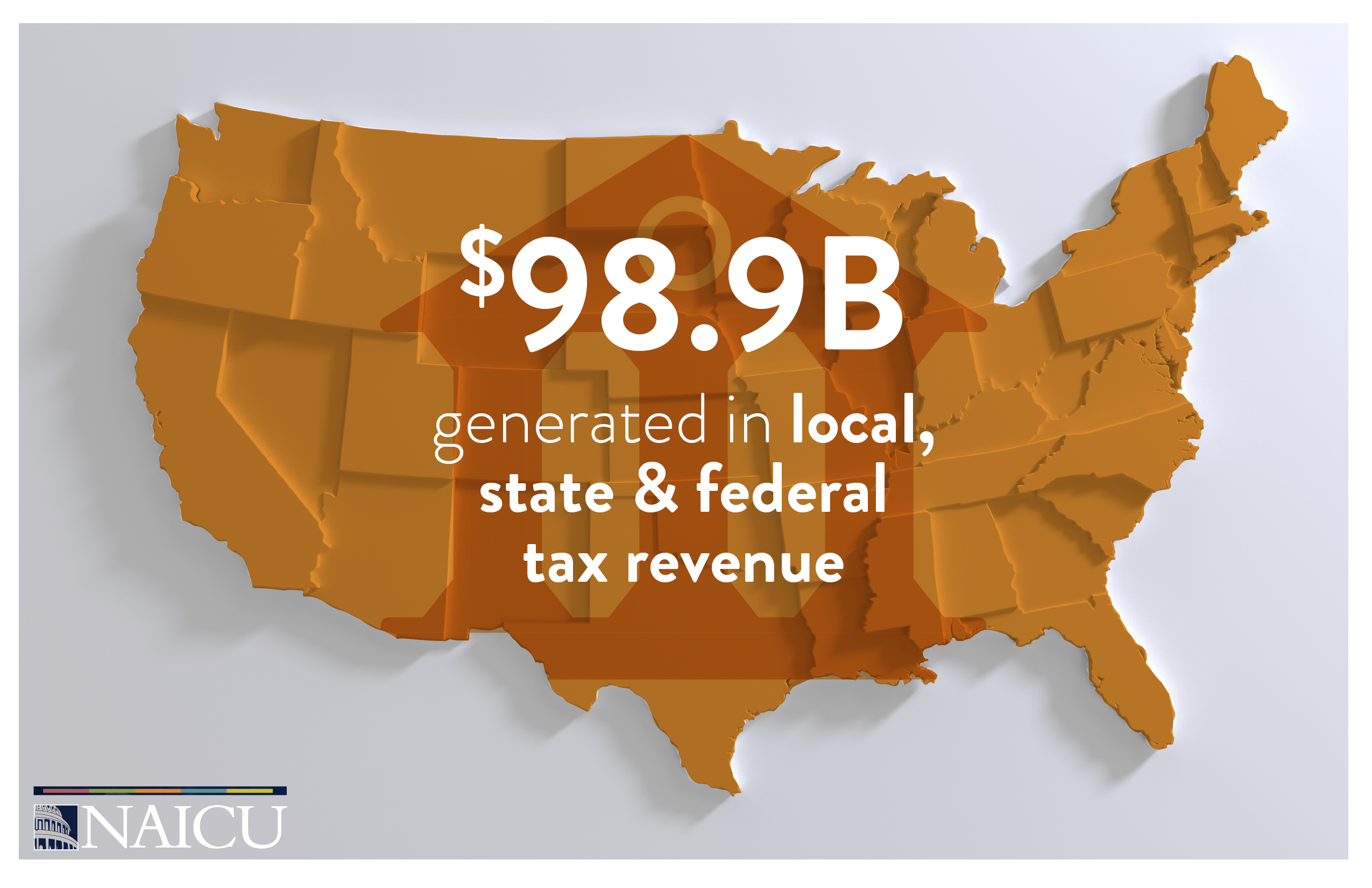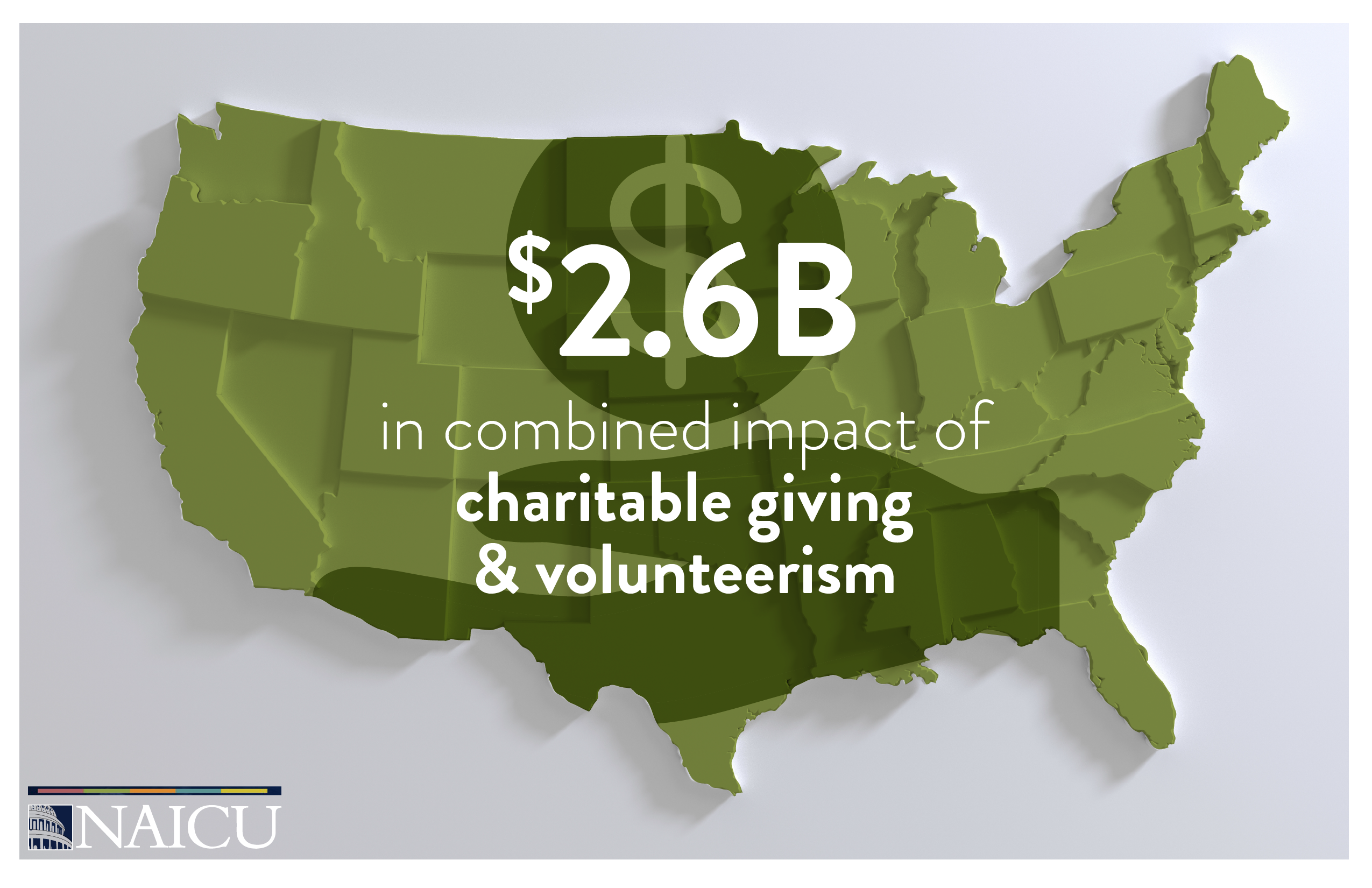
The contributions of higher education extend far beyond an individual degree. Private, nonprofit colleges and universities play significant roles in the everyday lives of those living and working in college communities and are important contributors in many ways to the nation as a whole.
The 2021 report, Private, Nonprofit Higher Education: Shaping Lives and Anchoring Communities, was a landmark report on the economic, social and cultural vitality that private, nonprofit colleges and universities add to communities, regions and the nation. Now, NAICU has published an updated Executive Summary. In the new summary, the economic impact of the private, nonprofit sector of higher education has grown to $651.9 billion from $591.5 billion. 
America’s private, nonprofit colleges and universities stand ready to lead in the central task of our time – rebuilding the health and economic vitality of the nation. The role and responsibility of private, nonprofit higher education in shaping lives and anchoring communities has never been more important to the economic, social and cultural vitality of our nation. Additional updated data includes:


The private, nonprofit higher education sector bestows degrees on 1.2 millions graduates annually. While enrolling 21% of students, it confers nearly 30% of undergraduate degrees and 45% of both master’s and doctoral degrees.


Private, nonprofit colleges and universities support and sustain a combined total of 3.4 million full-time and part-time jobs due to campus operations, student spending and visitor spending.


Private, nonprofit higher education directly employs 1.1 million people as part of its day-to-day operations. The direct employment at these colleges and universities, coupled with the spending by students and visitors, generates a significant multiplier effect.


Private, nonprofit higher education generates a total of $77.6 billion in local, state and federal tax revenue annually as a result of operations, student spending and visitor spending. These colleges and universities are an integral part of sustaining a strong tax base through their operational spending, employment, student spending on costs of daily living (exclusive of tuition, fees and on campus housing) and visitor spending on campus for conferences, meetings and events. Specific taxes generated include employee and employer contributions to social insurance funds, sales taxes, personal property taxes, taxes paid on motor vehicle licenses and payments of fines and fees.


Communities throughout the country benefit from the volunteer and philanthropic spirit embodied at many private, nonprofit colleges and universities. This spirit of giving back is rooted in the founding missions of these institutions. In 2024, the combined impact of charitable giving and volunteerism totaled $2.6 billion.

